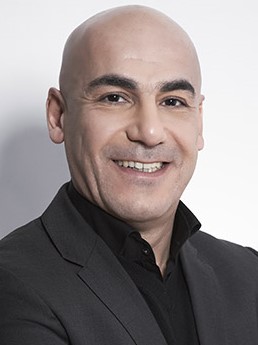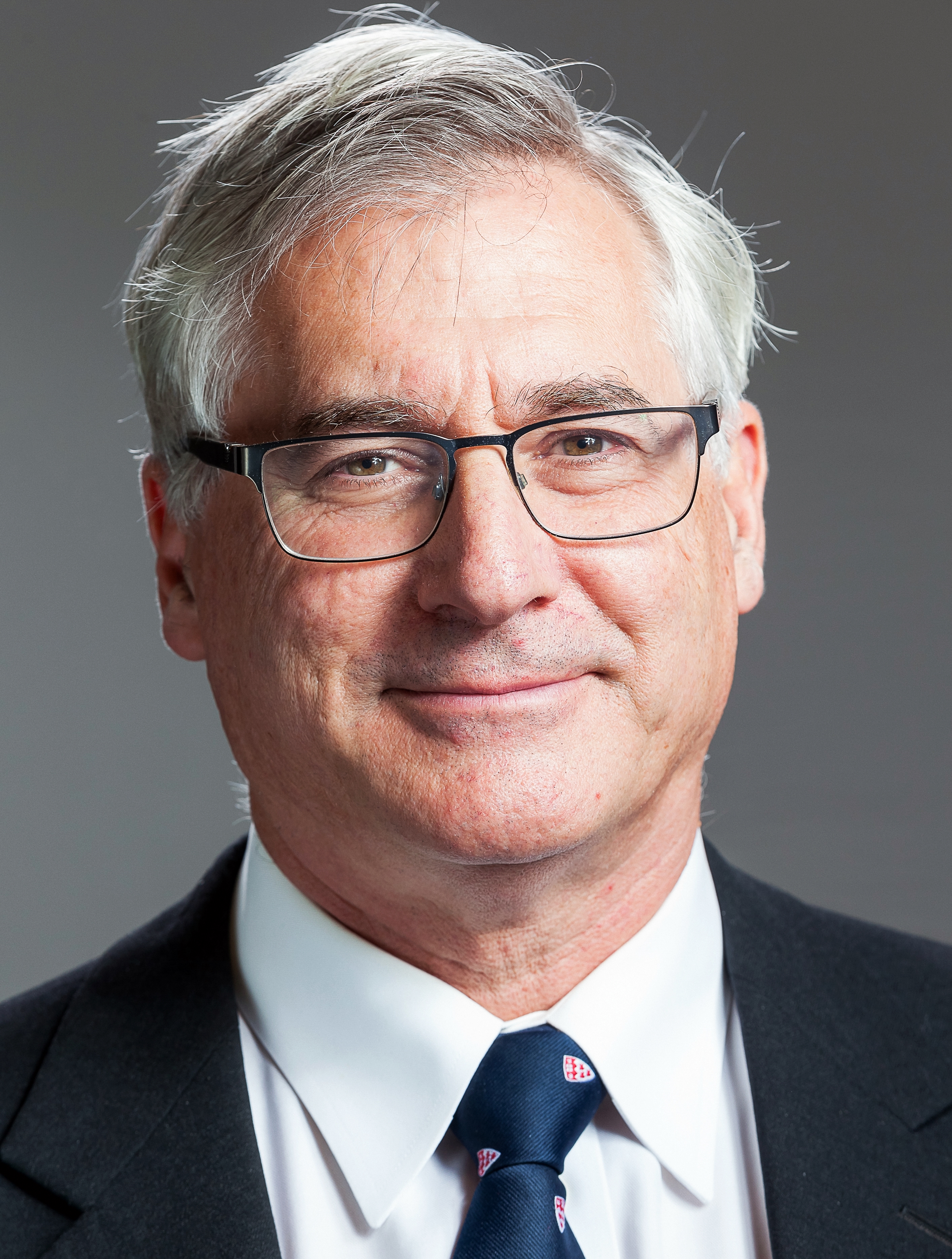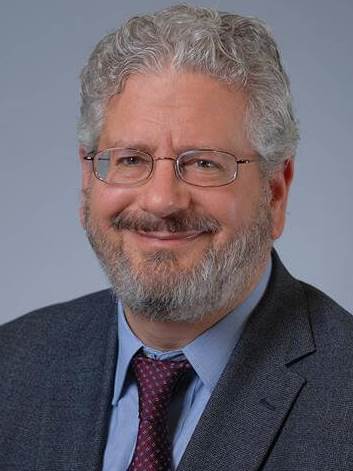2018 SPEAKERS
Ranjan Duara, MD, FAAN
Organizer
 Dr. Ranjan Duara is the Medical Director and Dennis C. Cole Family Chair in Alzheimer’s Disease Research at the Wien Center for Alzheimer’s Disease and Memory Disorders at Mount Sinai Medical Center in Miami Beach. He is a Professor of Neurology at the Herbert Wertheim College of Medicine (Department of Neurology) at Florida International University and Courtesy Professor of Neurology, University of Florida College of Medicine. He completed internal medicine and neurology residencies in India, the United Kingdom and at Thomas Jefferson University Hospital in Philadelphia, and did a fellowship in neuroscience and neuroimaging at NIH.
Dr. Ranjan Duara is the Medical Director and Dennis C. Cole Family Chair in Alzheimer’s Disease Research at the Wien Center for Alzheimer’s Disease and Memory Disorders at Mount Sinai Medical Center in Miami Beach. He is a Professor of Neurology at the Herbert Wertheim College of Medicine (Department of Neurology) at Florida International University and Courtesy Professor of Neurology, University of Florida College of Medicine. He completed internal medicine and neurology residencies in India, the United Kingdom and at Thomas Jefferson University Hospital in Philadelphia, and did a fellowship in neuroscience and neuroimaging at NIH.
Dr. Duara’s research has focused primarily on early diagnosis of Alzheimer’s disease and other dementias, neuroimaging, genetic epidemiology and the methodology for staging the transition from normal cognitive aging to dementia. He has contributed to over 200 articles in peer-review scientific journals as well many book chapters.
He is the Principal Investigator for the State of Florida Alzheimer’s Disease Initiative Brain Bank and Associate Director of the 1FLORIDA Alzheimer’s Disease Research Center. He has also been an investigator in numerous clinical trials of novel agents for the treatment of Alzheimer’s Disease.
Jubin Abutalebi, MD, PhD
Speaker – Workshop (Sunday, 11:00-11:15 am)
 Jubin Abutalebi, MD (Italy), PhD (Hong Kong) born in Vienna (Austria) is a Cognitive Neurologist and Associate Professor of Neuropsychology at the Faculty of Psychology, University Vita Salute San Raffaele in Milan. He graduated with Summa cum Laude at the University of Brescia Medical School in 1998, and specialized with Summa Cum Laude in Neurology at the University Vita Salute San Raffaele in 2003. Prof. Abutalebi has, furthermore, done both clinical and research activities in the Neurology Department of the University Vita Salute San Raffaele and abroad, in prestigious institutes such as the Charité Hospital, Humboldt Universität Berlin, Germany, the Institute Universitaire de Gériatrie, Université de Montréal, Canada, and the Faculty of Education at the University of Hong Kong.
Jubin Abutalebi, MD (Italy), PhD (Hong Kong) born in Vienna (Austria) is a Cognitive Neurologist and Associate Professor of Neuropsychology at the Faculty of Psychology, University Vita Salute San Raffaele in Milan. He graduated with Summa cum Laude at the University of Brescia Medical School in 1998, and specialized with Summa Cum Laude in Neurology at the University Vita Salute San Raffaele in 2003. Prof. Abutalebi has, furthermore, done both clinical and research activities in the Neurology Department of the University Vita Salute San Raffaele and abroad, in prestigious institutes such as the Charité Hospital, Humboldt Universität Berlin, Germany, the Institute Universitaire de Gériatrie, Université de Montréal, Canada, and the Faculty of Education at the University of Hong Kong.
From 2004 to 2008, he was a post doctoral fellow and adjunct professor at the Psychology Dept. University Vita Salute San Raffaele. From 2008 to 2014, he was Assistant Professor of Neuropsychology in the Psychology Department of the University Vita Salute San Raffaele in Milan, Italy.
Clinically, Prof. Abutalebi is involved in various aspects of neurorehabilitation such as speech therapy with aphasics in the Dept. of Clinical Neurosciences of the San Raffaele Turro Hospital.
Jubin Abutalebi is the Editor-in-Chief of the prestigious international journal “Bilingualism: Language and Cognition” (Cambridge University Press).
Bilingualism and Dementia Prevention: Neuroprotection as Studied in The Brain
Jubin Abutalebi
Vita-Salute San Raffaele University, Milan, Italy
With the population aging and a dramatic increase in the number of senior citizens, public health systems will be increasingly burdened with the need to deal with the care and treatment of individuals with dementia. Enabling people to function independently for longer has immediate social and economic benefits by adding quality of life to the patient and time during which health care resources are not required. Importantly, some environmental factors have been shown to maintain cognitive functioning with aging and postpone the onset of symptoms of dementia. These factors contribute to a concept called ‘cognitive reserve’, and include education, occupational status, socio-economic class, and involvement in physical, intellectual and social activities.
During my talk, I provide functional and structural neuroimaging evidence demonstrating how a particular experience, bi- and multilingualism, protects cognitive function in older age and delay onset of symptoms of dementia. Indeed, as has been widely reported, lifelong multilingualism may represent a powerful cognitive reserve delaying the onset of dementia by approximately 4 to 5 years. As to the causal mechanism, because speaking more than one language heavily relies upon executive control and drives more the lexico-semantic system, brain networks handling these cognitive functions are more developed in bilinguals resulting in increases of grey and white matter densities. As I will show, these neuroplastic changes may eventually help protect from dementia onset and/or compensate better once cognitive decline is manifest. I will provide evidence from both structural neuroimaging studies (Magnetic Resonance Imaging) and PET (Positron Emission Tomography) studies how bilingualism builds up a neural reserve in the human brain and how the bilingual brain compensates the eventual loss of neurons during cognitive decline. However, as I will conclude, being simply bilingual it is not enough in order to obtain these neuro-cognitive benefits. Only those bilingual individuals with a very to high second language proficiency and those who are actively exposed to a second language may benefit from the abovementioned neuroprotective effects.
Sanjay Asthana, MD
Speaker – MCI Symposium (Saturday, 1:30-1:45pm)
 Sanjay Asthana, MD, is the Duncan G. and Lottie H. Ballantine Chair in Geriatrics and professor and head of the Division of Geriatrics and Gerontology in the Department of Medicine at the University of Wisconsin School of Medicine and Public Health.
Sanjay Asthana, MD, is the Duncan G. and Lottie H. Ballantine Chair in Geriatrics and professor and head of the Division of Geriatrics and Gerontology in the Department of Medicine at the University of Wisconsin School of Medicine and Public Health.
He is the director of the Wisconsin Alzheimer’s Disease Research Center (ADRC), which was formally established in 2009 with funding from the National Institute on Aging (NIA) and National Institutes of Health (NIH). The center was the first geriatric-based program in the country to earn an Alzheimer’s center designation by the NIH. Its mission is to provide infrastructure, services and support to Alzheimer’s related research projects across campus.
Dr. Asthana earned his medical degree from the University of Delhi in India and completed his residency at the University of Saskatchewan School of Medicine in Saskatchewan, Canada, and a fellowship at Johns Hopkins Hospital. He also completed a three-year research fellowship in Alzheimer’s disease at the Laboratory of Neurosciences of the NIA/NIH in Bethesda, Maryland. He has been part of the UW-Madison faculty since 2001.
Dr. Asthana is widely recognized for his research in the neuroendocrinology of Alzheimer’s disease, and has published extensively in the field of hormones and cognition.
The Impact of Cognitive Reserve on CSF Biomarkers of AD
Sanjany Asthana
University of Wisconsin School of Medicine and Public Health, Madison, WI, USA
There is convincing evidence that Alzheimer’s disease (AD) is preceded by at least a decade of a preclinical stage characterized by ongoing disease pathology, without any clinical symptoms. Progression from preclinical to clinical stages of AD is affected by multiple factors including cognitive reserve. Converging evidence from hundreds of cross-sectional and longitudinal studies suggests that preclinical AD could be identified by select biomarkers representing potential mechanisms underlying AD pathology. Notably some of these biomarkers likely represent mechanisms mediating cognitive reserve as well. Among the key CSF biomarkers, signifying AD pathology and possibly cognitive reserve include those related to amyloid deposition (e.g., Aβ-42, Aβ oligomers, Aβ-42/p-tau, N-terminal truncated Aβ-42, etc.) neurodegeneration (e.g., Total tau, p-tau, oligomeric forms of tau), synaptic function/dysfunction (e.g., Neurogranin, SNAP-25, VLP1, etc.), axonal death (e.g., Neurofilament like protein), and neuroinflammation (e.g., YKL-40, MCP-1, soluble forms of TREM2, cytokines, chemokines, etc.). Importantly, some of these biomarkers correlate directly with PET evidence of amyloid and tau deposition and have the potential to predict AD risk, as well as conversion from preclinical to symptomatic stages of the disease. Furthermore, CSF biomarkers could serve as measures of response to various treatments. Although the clinical significance of CSF biomarkers of AD and cognitive reserve is potentially high, their clinical utility is currently limited due to lack of large validation studies and analytical inconsistencies across studies. This presentation will include information on several aspects of the assigned topic, including CSF biomarkers of AD and their relevance to cognitive reserve, current limitations in interpretation of CSF biomarker data, recent findings from select, prominent studies focused on CSF biomarkers of preclinical AD, Wisconsin ADRC findings of potential application for CSF measures of cognitive reserve and future directions and conclusions.
Marco Calabria, PhD
Speaker – Workshop (Sunday, 9:50 – 10:05 am)
 Marco Calabria, PhD, started his scientific career in 2001 with a fellowship within the European framework of the ‘Erasmus-Socrates Project’ at the Université Catholique de Louvain (UCL) in Belgium. In 2003 he conducted research in the field of neuropsychology of spatial and number processing at INSERM Unit U864 (France, Lyon) under the supervision of Prof. Yves Rossetti. Between 2003 and 2006, he worked as a clinical neuropsychologist at the Cognitive Neuroscience Laboratory of IRCCS Centro S.Giovanni di Dio in Brescia (Italy). In 2006 he started his PhD in Psychobiology at the University of Padua (Italy) under the supervision of Prof. Patrizia Bisiacchi investigating the electrophysiology of episodic memory and aging. Besides his thesis, he has been collaborating on projects about language and fronto-temporal dementia and non-pharmacological rehabilitation of cognitive decline with transcranial magnetic stimulation.
Marco Calabria, PhD, started his scientific career in 2001 with a fellowship within the European framework of the ‘Erasmus-Socrates Project’ at the Université Catholique de Louvain (UCL) in Belgium. In 2003 he conducted research in the field of neuropsychology of spatial and number processing at INSERM Unit U864 (France, Lyon) under the supervision of Prof. Yves Rossetti. Between 2003 and 2006, he worked as a clinical neuropsychologist at the Cognitive Neuroscience Laboratory of IRCCS Centro S.Giovanni di Dio in Brescia (Italy). In 2006 he started his PhD in Psychobiology at the University of Padua (Italy) under the supervision of Prof. Patrizia Bisiacchi investigating the electrophysiology of episodic memory and aging. Besides his thesis, he has been collaborating on projects about language and fronto-temporal dementia and non-pharmacological rehabilitation of cognitive decline with transcranial magnetic stimulation.
Upon completion of his PhD in 2009, Dr. Calabria moved to Barcelona for a post-doctoral fellowship. He joined the Speech Production and Bilingualism (SPB) (Prof. Albert Costa) at the Universitat Pompeu Fabra. In 2010, he was awarded a post-doctoral fellowship from the Spanish Government (Juan de la Cierva) and in 2014, a Ramón y Cajal senior fellowship. His work now focuses on language and executive control functions in bilingual speakers with neurodegenerative diseases. In the last two years he has also expanded his research to bilingual aphasia and to cognitive reserve mechanisms in bilinguals with cognitive decline (a project funded by La Marató-TV3 Foundation).
The results of his research at SPB have been presented in several international conferences of neuropsychology, cognitive psychology and linguistics.
Active Bilingualism as a Cognitive Reserve Mechanism in Mild Cognitive Impairment
Marco Calabria
Center for Brain and Cognition, Pompeu Fabra University, Barcelona, Spain
There is growing evidence that bilingualism acts as cognitive reserve (CR) mechanisms in older adults and age-related disorders. However, we have little knowledge about the possible underlying mechanisms behind this bilingual advantage. The two main hypotheses proposed for CR include compensation of spared brain network and increased cognitive and neural efficiency. By now, in the context of bilingualism there is evidence supporting both of them, but limited to few studies.
In order to investigate the contribution of cognitive efficiency in CR we tested the executive control (EC), attention and episodic memory in bilinguals who actively used their two languages vs. people with a low use of a second language (L2). Indeed, one of the driving hypotheses of the bilingual advantage on EC is related to the frequency of language use and switching.
We tested 230 bilinguals of three groups: healthy older adults, patients with Alzheimer’s disease (AD) and with Mild Cognitive Impairment (MCI). ‘Active’ bilinguals were early and high proficient Catalan-Spanish bilinguals, they had a high frequency of use of their L2, and they switched between languages in their everyday life. ‘Passive’ bilinguals were Spanish speakers with exposure to Catalan (L2) and low used of their L2.
First, we found that active bilingualism delayed disease onset with a greater magnitude in MCI than AD, independently of education and other CR factors. Second, active bilinguals outperformed passive bilinguals in conflict monitoring but also in episodic long-term memory tasks.
To conclude, these data add new evidence that bilingualism acts as a CR factor, especially in the preclinical stage of dementia. Moreover, the results indicate that age of L2 acquisition and frequency of language use are crucial variables in determining such bilingual advantage. Finally, higher efficiency of the EC and memory system, boosted by the active use of the two languages, would explain how bilingualism acts as CR factor in delaying the cognitive symptoms of age-related decline.
Howard Chertkow, MD, FRCP
Keynote Speaker – MCI Workshop (Sunday, 9:15 – 9:45 am); Public Forum (Sunday, 3:45-4:00 pm)
 Dr. Howard Chertkow is a practicing cognitive neurologist at the Jewish General Hospital of McGill University in Montreal Canada, where he helped found and direct Canada’s largest memory clinic. Dr. Chertkow’s major areas of research interest include 1) Early diagnosis of Alzheimer’s Disease and prediction of deterioration in individuals with Mild Cognitive Impairment, 2) the structure, organization, and function of the Semantic Memory component of long term memory, and its deterioration in dementia, 3) localization of language and memory functions in the brain using functional imaging, and 4) therapy of anomia using neuromodulation approaches.
Dr. Howard Chertkow is a practicing cognitive neurologist at the Jewish General Hospital of McGill University in Montreal Canada, where he helped found and direct Canada’s largest memory clinic. Dr. Chertkow’s major areas of research interest include 1) Early diagnosis of Alzheimer’s Disease and prediction of deterioration in individuals with Mild Cognitive Impairment, 2) the structure, organization, and function of the Semantic Memory component of long term memory, and its deterioration in dementia, 3) localization of language and memory functions in the brain using functional imaging, and 4) therapy of anomia using neuromodulation approaches.
Dr. Chertkow’s CV lists 270 publications, including 170 peer-reviewed articles and chapters. Twelve of his publications have over 100 citations, and three of the publications have been cited over 1000 times. In 2005 he and his colleagues, Ziad Nasreddine and Natalie Phillips, published the Montreal Cognitive Assessment (MoCA), which has become an international standard for diagnosis of MCI, and has been cited over 3000 times. The MoCA is now used around the world to screen for cognitive loss in the elderly. Thompson Reuters’ Essential Science Indicators noted this to be the most cited paper in mild cognitive impairment, 2006-2009. In 2014 Dr. Chertkow was elected to the Canadian Academy of Health Sciences. Dr. Chertkow is the new Scientific Director for the Canadian Consortium on Neurodegeneration in Aging (CCNA), a national organization established by the Canadian government in 2014. CCNA brings together the entire Canadian dementia research community to establish national teams and platforms to produce breakthroughs in the diagnosis and treatment of the dementing illnesses.
Bilingualism: Consequences for the Progression of MCI
Howard Chertkow
Professor of Neurology, McGill University, Montreal, Canada
Bilingualism and multilingualism ought to be beneficial for the individual and his/her brain. Indeed, they confer psychological advantages at different stages during life in terms of better cognitive functioning. Research findings on bilingualism, however, are diverse and not always consistent in showing the predicted benefit in terms of increasing cognitive reserve, and delaying the progression of cognitive symptoms in patients with mild cognitive impairment (MCI). We will review the evidence to date, examining how different elements (multilingualism vs. bilingualism, immigrant-related bilingualism vs. native bilingualism, different cultural contexts) modify the degree of the beneficial effect of bilingualism. Depending on extraneous and complex factors, the benefits of bilingualism vary from nil to strong. I will also present recent MRI imaging work carried out with Montreal colleagues Hilary Duncan, Jim Nikelski, and Natalie A. Phillips. Our studies of cortical thickness and gray matter tissue density measurements in MCI and AD individuals demonstrate that multilingual MCI individuals had thicker cortex than their monolingual counterparts, with the reverse pattern present in AD. Our results provide evidence that multilingualism contributes to both brain reserve and cognitive reserve in MCI and AD patients.
The Importance of Bilingualism for Cognitive Aging and Development of Dementia
Howard Chertkow
Neurology, McGill University, Montreal, Canada
Many people around the world speak two three or more languages, and a range of benefits and advantages have been documented in such persons. What about aging and dementia? There is growing evidence that being multi-lingual provides a measure of “cognitive reserve” which strengthens the brain against the effects of aging-related cognitive decline and even dementia. But how exactly do bilingualism and multilingualism stack up in terms of the strength and reliability of this benefit? Does it really help the brain or is it just another marker for higher education and better nutrition? Does it matter how much you use your second language or at what age you learned it? In this lecture we will look at the evidence coming in from around the world concerning bilingualism and multilingualism and aging and dementia.
Nancy Donovan, MD
Speaker – MCI Symposium (Saturday, 4:30 – 4:45 pm)
 Nancy J. Donovan, MD, is an Associate Psychiatrist in the Departments of Psychiatry and Neurology at Brigham and Women’s Hospital, Associate Researcher at the Massachusetts General Hospital, and Assistant Professor of Psychiatry at Harvard Medical School. She is a board certified Geriatric Psychiatrist who obtained her MD from Columbia University, College of Physicians and Surgeons and completed clinical and research training at Stanford University Medical Center, Cambridge Hospital and Brigham and Women’s Hospital.
Nancy J. Donovan, MD, is an Associate Psychiatrist in the Departments of Psychiatry and Neurology at Brigham and Women’s Hospital, Associate Researcher at the Massachusetts General Hospital, and Assistant Professor of Psychiatry at Harvard Medical School. She is a board certified Geriatric Psychiatrist who obtained her MD from Columbia University, College of Physicians and Surgeons and completed clinical and research training at Stanford University Medical Center, Cambridge Hospital and Brigham and Women’s Hospital.
Dr. Donovan’s research concerns the natural history and pathophysiology of neuropsychiatric symptoms and social behavioral changes in early Alzheimer’s disease (AD). Her work is focused on identifying phenotypic behavioral changes in preclinical stage AD and understanding their relationship to AD biomarkers and clinical progression. Dr. Donovan is a co-investigator in AD-related, investigator-initiated longitudinal cohort studies such as the Harvard Aging Brain Study and clinical trials research at the Center for Alzheimer Research and Treatment.
She also attends as a geriatric psychiatrist in the Center for Brain Mind Medicine at Brigham and Women’s Hospital.
Association of Amyloid-β with Depression-Related Symptoms in Cognitively Normal Older Adults
Nancy Donovan
Harvard Medical School, Brigham and Women’s Hospital, Boston, MA, USA
BACKGROUND: Progressive amyloid-β (Aβ) deposition occurs in cognitively normal (CN) older people for a decade or more before the onset of mild cognitive impairment. Little is known of the relationship between cortical Aβ burden and trajectories of depressive symptoms during preclinical Alzheimer’s disease. Our objective was to examine cortical Aβ as a predictor of depression and depressive symptom clusters in an observational cohort of CN older adults.
METHODS: Community-dwelling, CN volunteers (n=270), ages 63-90, underwent baseline measurements of cortical aggregate Aβ, using PiB-PET and annual 30-item Geriatric Depression Scale (GDS) assessments over 5 years. Total GDS scores and mean GDS scores for three clusters of GDS items (Apathy-Anhedonia, Dysphoria and Anxiety-Concentration) were calculated annually. We evaluated PiB DVR as a predictor of GDS total scores across time, using a mixed-effects model with backward elimination (retention threshold p<0.05). Initial predictors included PiB, age, sex, Hollingshead, AMNART, APOEε4, depression history and their interactions with time. In three additional models, GDS total score was replaced with each GDS cluster score as the dependent variable.
RESULTS: Higher baseline PiB predicted accelerated rates of increase for GDS total scores adjusting for depression history (p <0.0001, for fixed effects predicted vs actual GDS). Higher PiB also predicted steeper rates of increase for Anxiety-Concentration scores adjusting for other significant predictors (p <0.0001, for fixed effects predicted vs actual scores). In a post-hoc model estimating anxiety without concentration disturbance items, the PiB-time interaction remained significant. Neither PiB nor the PiB-time interaction was retained in other models.
CONCLUSION: These results suggest that emergent or worsening anxious-depressive symptoms in CN older people may be a direct or indirect effect of elevated Aβ. We will discuss these and related findings pertaining to anxiety and loneliness to summarize developing research implicating Aβ in the pathogenesis of neuropsychiatric symptoms in early AD.
Serge Gauthier, CM, MD, FRCPC
Special Lecture (Sunday, 8:35 – 9:05 am); Keynote Lecture – Forum (Sunday, 1:40-2:10 pm)
 Serge Gauthier, MD, FRCPC, is a neurologist and a full-time clinician researcher who has been conducting research on dementing disorders at the Douglas Institute since 1990. He is also a professor in the Departments of Neurology & Neurosurgery, Psychiatry, Medicine, at McGill University, and Director of the Alzheimer Disease and Related Disorders Research Unit of the McGill Center for Studies in Aging, Douglas Hospital. Recipient of the Order of Canada in 2014.
Serge Gauthier, MD, FRCPC, is a neurologist and a full-time clinician researcher who has been conducting research on dementing disorders at the Douglas Institute since 1990. He is also a professor in the Departments of Neurology & Neurosurgery, Psychiatry, Medicine, at McGill University, and Director of the Alzheimer Disease and Related Disorders Research Unit of the McGill Center for Studies in Aging, Douglas Hospital. Recipient of the Order of Canada in 2014.
Serge Gauthier is credited with setting up the first multicentre Canadian study of tacrine as a treatment for Alzheimer’s disease as well as with creating the Consortium of Canadian Centres for Clinical Cognitive Research (C5R). In addition to authoring countless research articles, reviews and book chapters, Serge Gauthier edited an internationally cited textbook with 50 percent Canadian authorship called Clinical Diagnosis and Management of Alzheimer’s Disease, followed by many other books, including a guide on Alzheimer’s disease written with Dr. Judes Poirier, called La maladie d’Alzheimer : Le guide.
In 2012, Serge Gauthier co-chaired the Canadian Consensus Conference on Dementia (CCCDTD4) with Christopher Patterson, MD, FRCPC, to develop evidence-based consensus statements. The goal is to build clinical practice guidelines for primary care physicians and specialists toward the recognition, assessment and management of age-related cognitive disorders.
Finally, Serge Gauthier is famous for his outstanding contributions to the development of new diagnostic and therapeutic approaches to Alzheimer’s disease and other dementing disorders.
Dr. Gauthier conducted his medical studies at Université de Montréal, and trained in Neurology at McGill University with a Research Fellowship in TL Sourkes’ laboratory, Allen Memorial Institute, Montreal. He was later a clinical investigator and staff neurologist at the Montreal Neurological Hospital and Institute (1976-1986), Director of the McGill Centre for Studies in Aging (1986-1996) and then Senior Scientist of the CIHR-Rx&D program (1997-2007).
Treatment of Alzheimer’s Disease: Where We Are and Prospects for the Future
Serge Gauthier
McGill Center for Studies in Aging, Montréal, Canada
There has been steady progress in our understanding of the various pathologies underlying Alzheimer’s disease (AD), which include amyloid deposition in brain tissue and blood vessels, tau hyperphosphorylation and aggregation in neurons, and neuro-inflammation, leading to a gradual loss of synapses and neurons until symptoms become apparent. Head injuries, small strokes and Lewy Bodies pathology can be additive factors in the progression of disease. The mixed pathology of AD is a reality that adds to the complexity of doing RCTs in relatively homogeneous populations. This is why there is so much hope that DIAN-TU should show benefit using anti-amyloid treatments in the absence of much of the co-morbidity found in late onset AD.
The AD underlying pathologies may be present for up to 30 years without any symptoms (asymptomatic stage of AD), some patients progressing to a prodromal or MCI stage lasting up to 5 years before there is a significant impairment of activities of daily living. There are thus opportunities for treatment before symptoms or when symptoms are mild, and not everyone will progress to MCI or to dementia even without specific treatment. There are ongoing efforts at designing RCTs for each stage of disease, with appropriate biological and clinical endpoints. Non-pharmacologic interventions such as FINGER have shown encouraging results and have contributed to the validation of cognitive outcomes in asymptomatic populations.
Biomarker studies can now be done in persons volunteering for research studies, in order to show the presence of the various AD pathologies using PET. There is hope that a single lumbar puncture will be able to give nearly as much information as three PET scans, measuring proteins such as beta-amyloid, tau, alpha-synuclein, as well as inflammatory markers. The presence of such markers will guide treatment against each of these pathologies in people who are at a higher risk of progression to MCI or to dementia because of genetic or other factors. New algorithms must be validated to estimate the relative risks of progression in individual subjects, based on genetic, biomarkers and neuropsychological performances over time.
Treatments specific to each component of AD pathology are being developed through RCTs. Although most of the efforts have been towards the amyloid component of AD, there is concurrent interest in anti-tau and anti-inflammatory drugs. If there is proof of benefit in delaying progression to MCI or to dementia for individual drugs, there will be interest in combining them to achieve larger therapeutic effects. Data sharing from observational studies and RCTs is now common practice, and we should learn from other fields such as oncology and infectious diseases about optimal trial designs to demonstrate additive benefits.
There is thus a cautious optimism that a personalized approach to the treatment of AD at its various stages (asymptomatic-at-risk, prodromal/MCI, dementia) is possible, and we need to encourage the participation of interested persons into observational and new therapeutic studies.
Mary Ganguli, MD, MPH
Chair – MCI Symposium (Session 3 – Saturday, 2:40 – 5:20 pm); Speaker – Public Educational Forum (Sunday, 3:25 – 3:40 pm)
 Dr. Mary Ganguli, MD, MPH, is a geriatric psychiatrist and psychiatric/neuroepidemiology at the University of Pittsburgh, where she teaches residents, fellows, and graduate students. She provides geriatric psychiatry outpatient services at the University of Pittsburgh Medical Center.
Dr. Mary Ganguli, MD, MPH, is a geriatric psychiatrist and psychiatric/neuroepidemiology at the University of Pittsburgh, where she teaches residents, fellows, and graduate students. She provides geriatric psychiatry outpatient services at the University of Pittsburgh Medical Center.
Dr. Ganguli has been conducting population-based studies of cognitive impairment and dementia since 1987. She served on the Neurocognitive Disorders Work Group of DSM-5, and is a member of the AAN Practice Parameter Work Group on MCI. She previously served on the National Advisory Council on Aging. Dr. Ganguli is Associate Editor of the Journal of the American Geriatrics Society and of International Psychogeriatrics, and an Editorial Advisory Board member of Alzheimer Disease and Associated Disorders.
Mood, Personality, and Behavior Changes in Early Alzheimer’s Disease
Mary Ganguli
University of Pittsburgh School of Medicine, Pittsburgh, PA, USA
Although loss of memory and other cognitive functions are considered the clinical hallmarks of Alzheimer Disease (AD), it is less well understood that the majority of patients experience changes in mood and behavior early in their disease course. Indeed, in some AD patients, mood and behavior changes are the first symptoms that they might have, and for which they seek health care. Often, these symptoms are more distressing to patients and their families than is memory loss. Typically, these symptoms are not recognized as representing early AD, and thus the underlying diagnosis of AD can be missed. We will talk about results of studies done thus far, what they might be telling us about different brain changes in AD, and how this knowledge may improve diagnosis and treatment in early AD.
Yonas Geda, PhD
Speaker – MCI Symposium (Saturday, 3:20 – 3:35 pm)
 Dr. Yonas E. Geda earned his MD degree from Addis Ababa (Haile Selassie) University, and subsequently pursued his training in Psychiatry, Behavioral Neurology, and a Master’s of Science (MSc) degree in Biomedical sciences at Mayo Clinic in Rochester, Minnesota. Following, his training, he became a full-time faculty member at Mayo Clinic in Rochester, Minnesota from 2001 to 2011. He transferred to Mayo Clinic in Scottsdale, Arizona, in 2012.
Dr. Yonas E. Geda earned his MD degree from Addis Ababa (Haile Selassie) University, and subsequently pursued his training in Psychiatry, Behavioral Neurology, and a Master’s of Science (MSc) degree in Biomedical sciences at Mayo Clinic in Rochester, Minnesota. Following, his training, he became a full-time faculty member at Mayo Clinic in Rochester, Minnesota from 2001 to 2011. He transferred to Mayo Clinic in Scottsdale, Arizona, in 2012.
Dr. Geda is actively engaged in clinical, educational and research activities. His research examines the impact of life style factors and neuropsychiatric symptoms on brain aging and mild cognitive impairment. He has authored or co-authored over 115 peer reviewed publications. Dr Geda has several institutional, national and international leadership roles. He is a member of the Science Committee of the French Alzheimer’s research group (Groupe de Recherche sur la maladie d’Alzheimer = GRAL). He is the current chair of the Award committee of the Neuropsychiatry interest group of the Alzheimer’s Association International Conference (AAIC).
Neuropsychiatric Symptoms as Predictors of MCI and Dementia: Epidemiologic Evidence
Yonas E. Geda and colleagues
Mayo Clinic Study of Aging
OBJECTIVE: To investigate the population-based risk of 1) incident mild cognitive impairment (MCI) and 2) incident dementia as predicted by baseline neuropsychiatric symptoms (NPS) among persons aged 70 years and older.
METHODS: We conducted two prospective cohort studies derived from the population-based Mayo Clinic Study of Aging in Olmsted County, Minnesota. The outcomes of interest were incident MCI (Study 1) and incident dementia (Study 2). A classification of normal cognitive aging, MCI, and dementia was adjudicated by an expert consensus panel based on published criteria and after reviewing neurologic, cognitive, and other pertinent data. Hazard ratios (HR) and 95% confidence intervals (95% CI) were computed using Cox proportional hazards model, with age as a time scale. NPS at baseline were measured using the Neuropsychiatric Inventory Questionnaire (NPI-Q).
RESULTS: Study 1: We prospectively followed 1587 cognitively normal persons to the outcome of incident MCI (N = 365) or censoring variables (N = 179) for a median of 5 years. Agitation (HR = 3.06, 95% CI = 1.89-4.93), apathy (HR = 2.26, 95% CI = 1.49-3.41), anxiety (HR = 1.87, 95% CI = 1.28-2.73), irritability (HR = 1.84, 95% CI = 1.31-2.58), and depression (HR = 1.63, 95% CI = 1.23-2.16), observed at baseline, increased the risk for later MCI. A secondary analysis, limited by small number of participants, showed that euphoria, disinhibition, and nighttime behaviors were significant predictors of non-amnestic MCI but not amnestic MCI. By contrast, depression predicted amnestic MCI (HR = 1.74, 95% CI = 1.22-2.47) but not non-amnestic MCI.
Study 2: We prospectively followed 391 participants with prevalent MCI to the outcome of incident dementia (N = 117) or censoring variables (N = 59) for a median of 3 years. Baseline agitation (HR = 1.97, 95% CI = 1.13-3.42), nighttime behaviors (HR = 1.68, 95% CI = 1.02-2.78), depression (HR = 1.63, 95% CI = 1.10-2.41), and apathy (HR = 1.62, 95% CI = 1.03-2.54) significantly increased the risk of incident dementia. We observed additive interactions between APOE ε4 and depression (joint effect HR = 2.21; 95% CI = 1.24-3.91; test for additive interaction, p < 0.001); and between APOE ε4 and apathy (joint effect HR = 1.93; 95% CI = 0.93-3.98; test for additive interaction, p = 0.031). Anxiety, irritability, and appetite/eating were not associated with increased risk of incident dementia.
CONCLUSIONS:
- Neuropsychiatric symptoms at baseline among cognitively normal elderly persons strongly predicted incident MCI.
- Neuropsychiatric symptoms at baseline among elderly persons with prevalent MCI strongly predicted the outcome of incident dementia.
Brian Gold, PhD
Speaker – Workshop (Sunday, 11:20 – 11:35 am)
 Brian Gold, PhD, is associate professor of neuroscience at the Sanders-Brown Center on Aging at the University of Kentucky College of Medicine.
Brian Gold, PhD, is associate professor of neuroscience at the Sanders-Brown Center on Aging at the University of Kentucky College of Medicine.
Dr. Gold received his PhD from York University and completed his post-doctoral research at Washington University.
Currently, his lab focuses on understanding how neurocognitive pathways change during normal aging and in early stages of Alzheimer’s disease.
Neural Efficiency in Lifelong Bilinguals Studied by Functional MRI
Brian Gold
Department of Neuroscience, University of Kentucky, Lexington, KY, USA
Bilingual older adults have been found to outperform their monolingual peers on executive function (EF) tasks. Bilingual EF gains are thought to result from the requirement to manage competing linguistic representations, which may represent a form of implicit practice effects on control processes central to EF processes such as switching attention and inhibition of distracting cues. In the broader literature, training paradigms and priming effects tend to be associated with faster reaction times (RT) and reductions in the magnitude of functional magnetic resonance imaging (fMRI) response. We have observed an analogous pattern in our studies on bilingualism, with bilingual older adults showing faster task switching performance and reduced fMRI response in multiple frontal brain regions. Further, faster switching RT was correlated with lower fMRI response in frontal brain regions. Our findings, and those of some other studies, are consistent with a view that bilingualism may enhance brain efficiency for EF. However, these results are not uniform across the literature, with other studies finding that bilingualism influences functional connectivity rather than fMRI magnitude. In addition, the cognitive and cerebral contributors to ‘brain efficiency’ remain underspecified at present. We briefly summarize recent evidence suggesting that the quality of white matter microstructure may represent one contributor to brain efficiency, mediating the relationship between RT and fMRI response. Future work will be required to better understand the nature of efficiency and its potential contribution to cognitive reserve.
Zahinoor Ismail, MD, FRCPC
Speaker – MCI Symposium (Saturday, 4:10 – 4:25 pm)
 Zahinoor Ismail is a clinician scientist in the Cumming School of Medicine at the University of Calgary. Dr. Ismail attended both medical school and residency in Alberta finishing in 1999 and completed a fellowship in Geriatric Neuropsychiatry at the University of Toronto in 2006. His clinical work stems the breadth of neuropsychiatry, with a focus on the interface between neurological and psychiatric disorders.
Zahinoor Ismail is a clinician scientist in the Cumming School of Medicine at the University of Calgary. Dr. Ismail attended both medical school and residency in Alberta finishing in 1999 and completed a fellowship in Geriatric Neuropsychiatry at the University of Toronto in 2006. His clinical work stems the breadth of neuropsychiatry, with a focus on the interface between neurological and psychiatric disorders.
Dr. Ismail’s lab in the Ron and Rene Ward Centre for Healthy Brain Aging Research, where he is a Principal Investigator and collaborator in several areas of research including: 1) neuroimaging and biomarkers of neuropsychiatric symptoms as early presymptomatic indicators of neurodegenerative disease and dementia; 2) biomarkers of neurological mimics of psychiatric disease; 3) linked database research of adverse drug reactions with psychiatric and neurological medications; 4) clinical psychopharmacology and clinical trials in cognitive and neurodegenerative diseases; and 5) systematic reviews and meta-analyses of neuropsychiatric symptom prevalence.
Dr. Ismail lead the team in the development of the ISTAART-AA provisional research criteria for Mild Behavioral Impairment (MBI), which describes mid and late life onset of sustained and impactful neuropsychiatric symptoms as an “at risk” state for cognitive decline and dementia. He has developed a rating scale based on the criteria, the MBI checklist, for which there are multiple ongoing translation and validation studies (www.MBItest.org). Dr. Ismail is also a contributor to the Canadian Network of Mood and Anxiety Disorders depression treatment guidelines and the Canadian Psychiatric Association Clinical Practice Guidelines for schizophrenia. Dr. Ismail’s work has been funded by the Canadian Institutes for Health Research, the U.S. National Institutes of Health, The Addiction and Mental Health Strategic Clinical Network, The Mathison Centre for Mental Health Research & Education, The Alzheimer Society of Calgary via the Hotchkiss Brain Institute, Brain Canada and the Canadian Consortium of Neurodegeneration and Aging.
Are there Neuroimaging Signatures for MBI? A Review of The 5 Domains
Zahinoor Ismail
University of Calgary, Calgary, AB, Canada
Recently, Mild Behavioural Impairment (MBI) has been proposed as a construct by an ISTAART- Alzheimer’s Association consensus group, and is characterized by later life acquired, sustained and impactful Neuropsychiatric Symptoms (NPS) of any severity that cannot be better accounted for by other formal medical and psychiatric nosology. MBI is an “at risk” state for incident cognitive decline and dementia, and for some, MBI is the index manifestation of neurodegeneration, observed in advance of cognitive impairment. Thus, MBI may co-occur with mild cognitive impairment or with normal cognition.
Published research has well characterized neural correlates and biomarkers of NPS in dementia. In predementia populations however, evidence is much sparser, and often MCI and dementia patients have been grouped together. Much data has come from retrospective analyses of the Alzheimer’s Disease Neuroimaging Initiative (ADNI). However, the representation of NPS in the predementia population in ADNI is somewhat low and severe NPS are often excluded. Nonetheless, ADNI has provided valuable information in this population.
We will review the neuroimaging evidence thus far for dementia signatures in predementia populations using ADNI and other databases, focusing on the MBI domains of motivation/drive, affective/emotional regulation, impulse control, social appropriateness, and thoughts/perception. We will also highlight gaps in knowledge and areas for future study to determine dementia neuroimaging markers in prodromal and preclinical states.
Debomoy Lahiri, PhD
Speaker – MCI Symposium (Saturday, 9:50 – 10:05 am)
 Debomoy K. Lahiri, PhD, ia Professor of Neuroscience, Psychiatry and Medical & Molecular Genetics, and leader of the Research Education Core for the Indiana Alzheimer Disease Center (IADC) at Indiana University School of Medicine, Indianapolis.
Debomoy K. Lahiri, PhD, ia Professor of Neuroscience, Psychiatry and Medical & Molecular Genetics, and leader of the Research Education Core for the Indiana Alzheimer Disease Center (IADC) at Indiana University School of Medicine, Indianapolis.
Dr. Lahiri studies the mechanism of aging, origin and biogenesis of the amyloid plaque, and tests potential drug targets for Alzheimer’s disease (AD) and other brain disorders. His group elucidated the role of environmental factors, epigenetics, and specific microRNA on AD. He has made significant contributions to map biochemical pathways for neurodegenerative diseases, such as AD and Parkinson’s as well as neurodevelopment disorders, such as autism and fragile X syndrome.
Dr. Lahiri has been awarded multiple R01 grants as a Principal Investigator from the National Institute on Aging, NIH; Alzheimer’s Association, and IIRG from Baxter Healthcare, Forest Research labs, and Novartis, Inc., USA. He is a member of the Scientific Advisory Board of several biotech companies. Dr. Lahiri has several patents and published over 300 scientific articles in neurobiology, genetics, and AD. He is the Founding Editor-In-Chief of international journals, ‘Current Alzheimer Research’ and ‘Current Aging Science’. He authored books, such as ‘Protective Strategies for Neurodegenerative Diseases’ published by New York Academy of Sciences.
Dr. Lahiri’s honors include the listing in Marquis’ ‘Who’s Who in the World’, and receiving the ‘Zenith Fellow Award’.
Epigenetics of LOAD
Debomoy K. Lahiri
Indiana University School of Medicine, Indianapolis, IN, USA
Late-onset Alzheimer’s disease (LOAD) as a multifactorial dementia. LOAD display well-established environmental associations. Understanding the factors that enable older persons to preserve cognitive functions into old age is important (Albert, NEJM-2017). Environmentally induced epigenomic changes can increase risk of dementia, yet individually these changes are latent. When sufficient alterations to the epigenome accrue, gene regulation becomes sufficiently perturbed, resulting in dementia (Maloney & Lahiri, Lancet Neurology-2016). The latent early-life associated regulation (LEARn) model integrates early-life events, environment and gene expression, while providing a mechanism for late-life disorders (Lahiri et al, Mol. Psychiatry-2009). This process can also occur across generations. We reported evidence from different studies, which interconnect environmental influence upon genes via epigenetic modification due to early-life ‘hits’, with the epigenomic record of such ‘hits’ being passed along to further generations (Lahiri et al, Epigenomics-2016). These hits can alter biochemical pathways until a pathological threshold is reached, which appears clinically as the onset of dementia. Impending dementia of a high-risk individual could be averted through environmental changes, including healthy lifestyle choices and other adjustments. Transcultural studies suggest that meditation (Innes et al, JAD-2016) and MIND diet (Morris et al, Alzheimers Dement-2015) or dietary supplementations could reduce the risk of cognitive decline. The LEARn-based studies could lead to effective treatments, and we are currently testing drugs in relevant AD models. Neurobiological effects of two epigenetic drugs in neuronal and AD-derived iPSC cultures will be parented. In summary, evidence from epigenetics could lead to ways to detect, retard and halt such processes before clinical dementia ensues.
Thanks to grant support from the National Institute on Aging (US NIH-NIA).
David Loewenstein, PhD, ABPP
Moderator – Workshop (Sunday – 11:40 – 12:10 pm); Chair – Public Educational Forum (Sunday 1:30 – 5:00 pm)
 David Loewenstein, PhD, is Director of Neuropsychology and Professor of Psychiatry and Behavioral Sciences at the Miller School of Medicine at the University of Miami. He has been actively involved in collaborative research with Dr. Ranjan Duara and other scientists at the Wien Center for Alzheimer’s Disease and Memory Disorders at Mount Sinai Medical Center, Miami Beach Florida where Dr. Loewenstein served as Director Neuropsychology Laboratories and Research Director for over 20 years.
David Loewenstein, PhD, is Director of Neuropsychology and Professor of Psychiatry and Behavioral Sciences at the Miller School of Medicine at the University of Miami. He has been actively involved in collaborative research with Dr. Ranjan Duara and other scientists at the Wien Center for Alzheimer’s Disease and Memory Disorders at Mount Sinai Medical Center, Miami Beach Florida where Dr. Loewenstein served as Director Neuropsychology Laboratories and Research Director for over 20 years.
Dr. Loewenstein has a number of research interests centering on the early detection of early cognitive impairment in neurodegenerative and other brain disorders, development of novel cognitive and functional measures, examining relationships between neuropsychological measures, neuroimaging and other biomarkers of early Alzheimer’s disease. Further, Dr. Loewenstein and other investigators in his laboratory have been involved in developing cognitive and functional interventions for normal elderly patients as well as those with Alzheimer’s disease and related disorders.
The Development of Novel Cognitive Stress Paradigms for Detection of Early Cognitive Impairment in Cross-Cultural Research
David Loewenstein, PhD, ABPP
University of Miami Miller School of Medicine, Miami, FL, USA
Traditional measures of memory function that have been employed for numerous decades, are unfortunately, insufficiently sensitive to detect the earliest cognitive manifestations of Alzheimer’s Disease (AD). Our laboratory has worked on the development of novel paradigms designed to be cognitive stress tests for the detection of early AD. These paradigms are analogous to an exercise electrocardiogram which measures the capacities of the heart when stressed, as opposed to a resting state.
One of our cognitive stress instruments, the LASSI-L has shown excellent psychometric properties and has distinguished individuals with both mild cognitive impairment (MCI) and AD, from cognitively normal (CN) elders. We present data that indicates that older adults with PreMCI states can be differentiated from CN on the basis of their LASSI-L scores. More importantly, data from PET scans indicate that elders with normal scores on traditional neuropsychological measures with increased total and regional amyloid load (e.g., precuneus, posterior cingulate) are strongly associated with failure to recover from proactive semantic interference (PSI). Further research with aMCI patients shows that reduced volumes in Alzheimer’s sensitive regions are also sensitive to the failure to recover from PSI.
The LASSI-L offers advantages over traditional cognitive paradigms in that it a) uses controlled learning; b) uses semantic cues at both encoding and retrieval; c) maximizes proactive semantic interference effects; d) assesses recovery from semantic interference and e) examines retroactive semantic interference (rSI) effects. The significance of these and other recent findings as they relate to the detection and monitoring of early neurodegenerative diseases is discussed.
Constantine Lyketsos, MD, MHS
Keynote Speaker – MCI Symposium (Saturday, 2:45 – 3:15 pm)
 Constantine Lyketsos, MD, graduated from Northwestern University and Washington University Medical School in St. Louis. He completed residency and Chief Residency in psychiatry at Johns Hopkins, as well as fellowships in clinical epidemiology and neuropsychiatry. He holds a certificate in the business of medicine from Johns Hopkins, where he also completed the Johns Hopkins Leadership Development Program. In 2008 he was named an Alafouzos Scholar in the Center for Innovative Medicine.
Constantine Lyketsos, MD, graduated from Northwestern University and Washington University Medical School in St. Louis. He completed residency and Chief Residency in psychiatry at Johns Hopkins, as well as fellowships in clinical epidemiology and neuropsychiatry. He holds a certificate in the business of medicine from Johns Hopkins, where he also completed the Johns Hopkins Leadership Development Program. In 2008 he was named an Alafouzos Scholar in the Center for Innovative Medicine.
An active clinician, teacher, and researcher, Dr. Lyketsos was the founding director of the Johns Hopkins Neuropsychiatry Service, which he led for over a decade. He developed one of the largest and most successful academic neuropsychiatry programs in the USA with special expertise in dementia and traumatic brain injury. Prior to taking leadership of Johns Hopkins Bayview Psychiatry, he was co-director of the Johns Hopkins Division of Geriatric Psychiatry and Neuropsychiatry. He has held a joint faculty appointment at the Hopkins Bloomberg School of Public Health since 1994.
As the Chair of the Academy of Psychosomatic Medicine Task Force on Subspecialization, Dr. Lyketsos was instrumental in the 2003 recognition by the American Board of Medical Specialties of a new psychiatric subspecialty, “Psychosomatic Medicine.” This rapidly expanding subspecialty is focused on psychiatric aspects of complex medically ill, typically patients with chronic diseases where the psychiatric condition is affecting medical care and outcomes. His expertise in this area is critical to his leadership role in the Johns Hopkins Community Health Partnership (J-CHiP) supported by a major grant from the CMS Innovations Center to transform the way Johns Hopkins delivers population-based healthcare in its several local communities.
A world expert in the care and treatment of patients with Alzheimer’s and related dementias (AD), he carried out pioneering work on the epidemiology and treatment of neuropsychiatric features of AD. His team is developing biomarkers to accelerate treatment development for AD and other forms of brain injury while designing and implementing innovative clinical trials. He leads efforts to ensure the provision of state of the art Dementia Care for people with dementia in the community. Dr. Lyketsos was a founding member of the Johns Hopkins Military and Veterans Health Institute and serves on its Steering Committee. He serves on the NFL Players Association Mackey-White Mild Traumatic Brain Injury Committee, Chairing the Long-Term Outcomes subcommittee. In 2010 he was Conference Chair of Traumatic Brain injury in Professional Football: An Evidence-Based Perspective sponsored by NFL.
Dr. Lyketsos is the 2016 recipient of the Jack Weinberg Award in Geriatric Psychiatry from the American Psychiatric Association, the 2012 recipient of the Distinguished Scientist Award from the American Association for Geriatric Psychiatry, and of the 2006 William S. Proxmire Award for “extraordinary leadership in the fight against Alzheimer’s”. He is a Distinguished Fellow of the American Psychiatric Association, Fellow of the American College of Neuropsychopharmacology, and elected member of the American College of Psychiatrists. He has authored or co-authored over 350 peer-reviewed articles, chapters, commentaries, as well as five books, including Systematic Psychiatric Evaluation and Psychiatric Aspects of Neurological Diseases (recently translated into Greek). Dr. Lyketsos is Deputy Editor of International Psychogeriatrics, and serves on the editorial boards of the American Journal of Psychiatry and Alzheimer’s and Dementia.
Castle-Connolly has named Dr. Lyketsos as one of America’s Top Doctors every year since 2001.
Mild Behavioral Impairment (MBI): Symptoms, Prodrome, or False Alarm?
Constantine G. Lyketsos
Johns Hopkins Bayview, Johns Hopkins Medicine, Baltimore, MA, USA
As many as 46% of older adults report current neuropsychiatric symptoms (NPS; e.g., depression, anxiety, apathy, agitation, etc.). Yet, only about 25% meet criteria for a Mental Disorder according to DSM, with clinical presentations that often differ from those seen earlier in life. For example, 37-62% of mood disorders in later life occur in patients with current cognitive disorders. These findings support two conclusions: (1) half of psychiatric conditions in later life do not fit traditional DSM phenotypes; and (2) more than half of non-cognitive psychiatric presentations are comorbid with cognitive syndromes. Many represent persistence or recurrence of early life onset “DSM” disorders, while others represent late life onset of “DSM” and “atypical” disorders. And, many (most?) result from brain conditions more common in later life such as cerebrovascular and neurodegenerative disease. In this context, the nosology and etiology of neuropsychiatric conditions in later life is being reassessed.
The association between NPS and degenerative dementia has been well established for over a decade. NPS affect persons with dementia almost universally over the course of their illness. In the context of dementia NPS are associated with a myriad of adverse consequences including worse quality of life, greater ADL impairment, earlier institutionalization, accelerated progression to dementia, and earlier mortality. Emerging evidence regarding etiology suggests NPS are intimately linked with the neurodegenerative process resulting either from direct injury to brain regions and circuits, or indirectly by rendering patients vulnerable. In the last several years two observations have emerged as significant. First, NPS appeared affect at least 50% of patients with MCI and are associated with accelerated progression to dementia. And, second, the occurrence of NPS in the absence of a cognitive syndrome is associated with accelerated progression to MCI and dementia.
The above observations led to the neuropsychiatric symptoms professional interest area of ISTAART to review the field and propose diagnostic criteria for mild behavioral impairment (MBI). These provisional criteria extend previous research in this area and incorporate the MCI construct into the framework. They are intended to facilitate research into understanding and studying NPS as a very early consequence of neurodegenerative disease thus becoming a target for early treatment/prevention, and potentially suggesting novel pathophysiologic mechanisms associated with the onset of MCI and dementia.
This presentation will review the reasoning and evidence associated with the MBI construct and discuss its emerging status as a symptom, prodrome, or false alarm.
Reference: Ismail et al, Alzheimer’s and Dementia 2016; 12:195-202
Henrietta Nielsen, PhD
Speaker – MCI Symposium (Saturday, 9:10 – 9:25 am)
 Dr. Henrietta Nielsen earned her PhD researching the role of serine protease inhibitors in Alzheimer’s disease and dementia with Lewy bodies from Lund University in 2007. With a postdoctoral fellowship from the Swedish Tegger Foundation she then got her initial postdoctoral training working with Dr. Robert Veerhuis at the VU Medical Center Amsterdam. During her training in the Netherlands she focused on amyloid-beta clearance and the influence of amyloid-associated-proteins like apolipoproteins E and J in primary cultures of post-mortem isolated human astrocytes and microglia.
Dr. Henrietta Nielsen earned her PhD researching the role of serine protease inhibitors in Alzheimer’s disease and dementia with Lewy bodies from Lund University in 2007. With a postdoctoral fellowship from the Swedish Tegger Foundation she then got her initial postdoctoral training working with Dr. Robert Veerhuis at the VU Medical Center Amsterdam. During her training in the Netherlands she focused on amyloid-beta clearance and the influence of amyloid-associated-proteins like apolipoproteins E and J in primary cultures of post-mortem isolated human astrocytes and microglia.
In 2009 Dr. Nielsen was recruited back to Lund University in Sweden where she helped establish the Molecular Memory Research Unit headed by Dr. Lennart Minthon. During her postdoctoral training at Lund University she spearheaded biomarker discovery efforts focusing on CSF alpha-synuclein levels and various inflammatory markers in patients with Alzheimer’s disease and synucleinopathies like Parkinson’s disease and dementia with Lewy bodies. With her colleagues at Lund University she also for the first time reported data from a detailed study of NG2 cells in the human Alzheimer’s disease brain.
Following her move to the Mayo Clinic in Florida in 2012 to work with Dr. Guojun Bu, Dr. Nielsen was assigned the senior editorship of Molecular Neurodegeneration and slightly changed her research focus to in detail study apolipoprotein E biology and its’ relevance as the main genetic risk factor for sporadic Alzheimer’s disease. Following her seminal description of the individual apolipoprotein E isoform levels in plasma and CSF from Alzheimer’s patients and controls, by use of mass-spectrometry in 2014, she has worked to elucidate the significance of peripherally-derived apolipoprotein E4 in neuropathology leading to dementia.
In 2015 Dr. Nielsen was recruited to Stockholm University where she is currently heading a research team with major efforts invested in assessing the role of alpha-synuclein in Alzheimer’s disease pathogenesis, and potential links between liver-derived apolipoprotein E and neurodegeneration of the brain.
Dr. Nielsen is an associate editor of the Journal for Alzheimer’s Disease (JAD), a senior editor of Molecular Neurodegeneration and a frequent reviewer for numerous journals and grant agencies. She is the recipient of a Younkin Scholars Award, a New Investigator Award (Alzheimer’s Association) and a VINNMER/Marie Curie Returning Fellowship.
Role of Apolipoprotein E in Neurodegenerative Dementia
Henrietta Nielsen
Stockholm University, Stockholm, Sweden
The APOEε4 allele remains the strongest genetic risk factor for neurodegenerative diseases such as Alzheimer’s disease (AD) and dementia with Lewy bodies (DLB). Carriers of the APOEε4 allele are at 4-15-fold higher risk of developing AD and up to 6-fold higher risk of developing DLB. What molecular mechanisms underlie the increased risk of diseases characterized by the pathological accumulation of amyloid-beta and tau versus alpha-synuclein are yet to be determined. Recent evidence supports large overlap of pathologies in these disorders in which for instance approximately 50% of all AD patients exhibit synucleinopathy whereas patients with synucleinopathy frequently also display amyloid-beta and tau pathology. Our previous studies have shown that the cerebrospinal fluid (CSF) levels of alpha-synuclein are decreased in patients with synucleinopathies like PD and DLB however AD patients exhibited slightly elevated levels of the same. Our ongoing research shows that patients with mild cognitive impairment (MCI) and that progress to AD over a time period of 24 months exhibit elevated CSF alpha-synuclein levels compared to controls. Within this group there was a dose-dependent effect of the APOEε4 allele in which homozygous MCI patients exhibit the highest CSF alpha-synuclein levels.
Data from our in vitro experiments supports a theory that APOEε4 promotes a shift in the balance of intra- versus extra-cellular pools of alpha-synuclein by inhibiting cellular uptake of this protein. From previous studies we know that APOEε4-carriers start to accumulate amyloid-beta pathology in the brain already in the middle age however it remains to be determined if the same phenomenon applies to alpha-synuclein.
Whether APOEε4 contributes to neuropathology due to a loss of normal function or gain of toxic function is heavily debated and literature describing APOEε4-phenotypical characteristics in humans are scarce. In a large population-based study from Denmark it was proposed that reduced plasma levels of apolipoprotein E (apoE) increased the risk of AD and all dementia. We previously showed that APOEε4-carriers regardless of disease status exhibited a prominent deficiency of apoE in plasma. This deficiency was solely attributed to reduced levels of specifically the apoE4 isoform as assessed in APOEε4 heterozygous subjects. In a follow-up study performed on cognitively healthy APOE ε3/ε4 carriers we showed that an increased relative ratio between the apoE4 and E3 isoforms levels in plasma was associated with reduced gray matter volume and glucose hypometabolism in several brain areas frequently affected in AD. Hence, we speculate that the peripheral pool of apolipoprotein E is of significance to pathological processes in the brain that lead to neurodegeneration and dementia. Using RNA seq we found that the expression of APOE in the livers of APOE ε3/ε4 carriers versus APOE ε2/ε3 carriers was not reduced hence we are currently looking to identify the mechanisms that post-transcriptionally regulate the levels of peripheral apoE isoforms in plasma and its relevance to neurodegenerative disease.
Ronald Petersen, MD, PhD
Chair – MCI Symposium (Session 2 – Saturday, 11:30 am – 2:40 pm)

Ronald C. Petersen, MD, PhD, is the Cora Kanow Professorship in Alzheimer’s Disease Research, and a Mayo Clinic Distinguished Investigator at the Mayo Clinic. He is on the National Advisory Council on Aging, and is the chair of the Advisory Council on Research, Care and Services for the National Alzheimer’s Project Act by the Secretary of the Department of Health and Human Services. Dr. Petersen is a recipient of the 2004 MetLife Award for Medical Research in Alzheimer’s Disease, and the 2005 Potamkin Prize for Research in Pick’s, Alzheimer’s and Related Disorders of the American Academy of Neurology.
Dorene Rentz, PsyD
Speaker – MCI Symposium (Saturday, 12:10 – 12:25 pm); Public Educational Forum (Sunday, 2:35 – 2:50 pm)
 Dorene M. Rentz, PsyD, is a clinical neuropsychologist with dual appointments in the Departments of Neurology at Brigham and Women’s Hospital and Massachusetts General Hospital. She is an Associate Professor of Neurology at Harvard Medical School and serves as the Co-Director of the Center for Alzheimer Research and Treatment and the Director of Neuropsychology at the Massachusetts Alzheimer’s Disease Research Center. She is also the Clinical Core Leader of the Harvard Aging Brain Study and the Director of the Recruitment and Outreach Core.
Dorene M. Rentz, PsyD, is a clinical neuropsychologist with dual appointments in the Departments of Neurology at Brigham and Women’s Hospital and Massachusetts General Hospital. She is an Associate Professor of Neurology at Harvard Medical School and serves as the Co-Director of the Center for Alzheimer Research and Treatment and the Director of Neuropsychology at the Massachusetts Alzheimer’s Disease Research Center. She is also the Clinical Core Leader of the Harvard Aging Brain Study and the Director of the Recruitment and Outreach Core.
Her research focus has been on the early detection of preclinical Alzheimer’s disease, particularly in high functioning individuals. Her recent work involves exploring early cognitive changes using PET amyloid and tau imaging and sensitive memory techniques. More recently, she is a leader in cognitive outcome assessments for secondary prevention trials in Preclinical Alzheimer’s disease and has explored the feasibility of using an IPad to do cognitive assessments in the clinic and home environments.
The Role of Cognitive Reserve in the Neuropsychological Diagnosis of Normal and Abnormal Aging
Dorene Rentz
Harvard Medical School, Brigham and Women’s Hospital, Massachusetts General Hospital, Boston, MA, USA
This presentation will explore the role of cognitive reserve in the neuropsychological diagnosis of normal and abnormal aging. In this context we will examine early preclinical pathological markers of amyloid and tau burden on cognition and whether cognitive reserve (CR) modifies this relationship. We will also present several case presentations where taking into account cognitive reserve assists in the early detection of Alzheimer’s disease.
The participants in this presentation will come from a community dwelling cohort participating in the Harvard Aging Brain Study and clinic patients from the MGH and BWH memory disorders clinic. They will have undergone neuropsychological testing (NP) and positron emission tomography examining amyloid beta (Ab) deposition using Pittsburgh Compound B (PiB PET) and inferior temporal tau deposition using T807 Tau PET (INF Tau). Education and AMNART IQ serve as proxies of CR.
We will discuss findings that higher Ab and INF Tau were both associated with lower NP, however, higher INF Tau had a stronger and more direct association with poorer cognition than Ab burden. These findings support the hypothetical AD model that Ab deposition occurs at an earlier stage than INF Tau but that INF Tau deposition is more directly concurrent with cognitive decline. CR modified the association between NP, Ab and INF Tau burden suggesting that CR may be protective against Ab and INF Tau-related cognitive impairment.
The Role of Cognitive Reserve in Normal and Abnormal Aging
Dorene Rentz
Harvard Medical School, Brigham and Women’s Hospital, Massachusetts General Hospital, Boston, MA, USA
Alzheimer’s disease is a slowly progressive illness that affects memory, overall thinking abilities and activities of daily life. However, changes in memory and thinking vary from person to person. There is some evidence that individuals with higher levels of education or intellectual ability may be able to withstand the devastating effects of Alzheimer’s disease better than others. Today, we will discuss the concept of cognitive reserve and the role it plays in the early diagnosis of Alzheimer’s Disease. We will address memory changes that are normal in contrast to those that may reflect early warning signs of Alzheimer’s Disease. Finally, we will present several cases where taking into account cognitive reserve may assist in the early diagnosis of Alzheimer’s disease.
Monica Rosselli, PhD
Chair – Workshop (Sunday, 9:10 am – 12:30 pm) and Speaker – Workshop (Sunday, 10:40 – 10:55 am)
 Mónica Rosselli, PhD, is a Professor and Assistant Chair of Psychology at Florida Atlantic University and director of the FAU Neuropsychology Laboratory at the Davie campus.
Mónica Rosselli, PhD, is a Professor and Assistant Chair of Psychology at Florida Atlantic University and director of the FAU Neuropsychology Laboratory at the Davie campus.
Her research focus is in the neuropsychological performance of special neurological populations (i.e. drug users, patients with dementia); the neuropsychology of normal and abnormal aging and the influence of cultural factors and bilingualism in neuropsychological test performance.
Dr. Rosselli has developed several neuropsychological tests for Spanish speaking individuals and has published numerous peer review journal articles in cross-cultural neuropsychology. She is also a co-investigator at the newly developed 1FLORIDA Alzheimer’s Disease Research Center supported by the National Institutes of Health.
Structural MRI and Memory in Bilinguals and Monolinguals with MCI
Monica Rosselli
Florida Atlantic University, Boca Raton, FL, USA
Keeping two languages active may increase cognitive and brain reserve among bilinguals. We explored whether such a neuroprotective effect was manifested in the performance of memory tests in amnestic mild cognitive impairment (aMCI). We compared aMCI bilinguals to aMCI monolinguals on memory tests which required different levels of executive function. We employed: a) the Loewenstein-Acevedo Scale for Semantic Interference and Learning (LASSI-L), a sensitive test that taps into proactive and retroactive semantic interference; and b) The Benson Figure Delayed recall. A subsample had volumetric MRI scans. Results showed that the bilingual group significantly outperformed the monolingual group on two LASSI-L cued recall measures. The superior memory performance of bilinguals over monolinguals suggest that bilinguals, by using two languages regularly, develop a different and perhaps more efficient semantic association system that influences verbal recall. Memory measures showed significant correlation with the volume of the hippocampus and the entorhinal cortex of both cerebral hemispheres in the bilingual group and with the left and right hippocampus in the monolingual group. The memory advantage in bilinguals was mediated by their higher inhibitory control since the Stroop CW was a significant covariate in the univariate analyses comparing bilinguals and monolinguals on the two LASSI-L Cued tests. Therefore, the memory advantage in bilinguals in word learning when semantic cuing is used seems to be related to inhibitory control.
Andrew Saykin, PsyD
Chair – MCI Symposium (Session 1 – Saturday, 8:30 – 11:30 am) ; Speaker – MCI Symposium (Saturday, 10:40 – 10:55 am); Speaker – Public Educational Forum (Sunday, 2:15 – 2:30 pm)
 Andrew Saykin, PsyD, is the Raymond C. Beeler Professor of Radiology and Imaging Sciences at Indiana University School of Medicine where he serves as director of the IU Center for Neuroimaging and the Indiana Alzheimer Disease Center (IADC). He also holds appointments in Medical and Molecular Genetics, Neurology and Psychiatry.
Andrew Saykin, PsyD, is the Raymond C. Beeler Professor of Radiology and Imaging Sciences at Indiana University School of Medicine where he serves as director of the IU Center for Neuroimaging and the Indiana Alzheimer Disease Center (IADC). He also holds appointments in Medical and Molecular Genetics, Neurology and Psychiatry.
He completed his graduate degrees at Hahnemann Medical College in Philadelphia (now Drexel University School of Medicine) and is board-certified in Clinical Neuropsychology. Before joining Indiana University in 2006 he served on the faculties of Dartmouth Medical School and the University of Pennsylvania. Currently, his transdisciplinary research program focuses on the integration of structural, functional and molecular brain imaging with genomic and biomarker methods to identify mechanisms of cognitive dysfunction, potential therapeutic targets and response to treatment in Alzheimer’s disease.
Dr. Saykin also serves as leader of the ADNI Genetics Core and collaborates on neuroimaging projects studying traumatic brain injury, cancer chemotherapy, and schizophrenia. He is the founding Editor-in-Chief of Brain Imaging and Behavior published by Springer.
Imaging Genetics of APOE and Non-APOE factors in LOAD
Andrew Saykin
Indiana University, Indiannapolis, IN, USA
Imaging genetics is a relatively new research field that investigates the role of genetic variation on neuroimaging phenotypes that may include measures of brain structure, activation, connectivity and molecular composition. Genetic variants range from candidate genes and targeted biological pathways to unbiased surveys of the entire genome. Recent approaches include not only genotypes determined from DNA samples but also measures of gene expression and epigenetic modifications including DNA methylation. Alzheimer’s disease has been one of the earliest and most extensively studied topics in imaging genetics. The Alzheimer’s Disease Neuroimaging Initiative (ADNI) has provided genome-wide association study (GWAS) and other –omics data coupled with multimodal MRI and PET phenotypes that have led to hundreds of publications reporting on gene-imaging associations. An overview of imaging genetics studies from ADNI and other related cohorts will be presented and a few selected results will be highlighted. APOE has been extensively studied while newer reports focus on the other top 20 or so established candidate genes impact on imaging phenotypes. Longitudinal GWAS studies have also revealed novel findings such as the role of IL1RAP, an immune gene, on rate of amyloid accumulation. There is considerable momentum in imaging genetics and several future directions will be mentioned. Whole genome sequencing has become feasible permitting imaging studies of rare variants. Longitudinal epigenetic and metabolomic imaging studies are beginning to examine gene environment interactions. Although not specific to Alzheimer’s disease, the ENIGMA consortium has accumulated very large data sets (>30,000) providing greater statistical power to detect brain-gene associations. Post-mortem human 3D brain imaging of gene expression profiling data has been made available by the Allen Institute. MODEL-AD, a new NIA-sponsored initiative, will generate novel gene-edited mice more specifically targeted to model LOAD that will then be used in imaging studies of experimental therapeutics. The coupling of multimodal imaging with multi-omics data is expected to provide a more detailed mapping of biological processes in those at risk for AD as well as during prodromal stages of disease. These developments will facilitate earlier detection and diagnosis and inform discovery of novel therapeutic targets.
Genetics of Late Onset Alzheimer’s Disease
Andrew Saykin
Indiana University, Indiannapolis, IN, USA
Initial genetic studies of Alzheimer’s disease (AD) focused on rare hereditary AD with autosomal dominant transmission and early disease onset which were found to be caused by mutations in one of three genes (PSEN1, PSEN2 or APP). The Dominantly Inherited Alzheimer Network (DIAN) focuses on detailed biomarker and treatment studies of affected families. Some cases of early onset of AD (EOAD) are sporadic and may be due to as yet unknown mutations or other factors. A new consortium, the Longitudinal Early-onset AD Study (LEADS), will investigate this group. Over 90 percent of Alzheimer’s disease is both sporadic and late onset (LOAD). Genetic variation plays an important role in LOAD with heritability estimates ranging from 60-80 percent. The APOE gene is the leading risk factor for LOAD other than age. Three variants in APOE include the epsilon 2/3/4 alleles with e3 being the most common. The e4 allele, found in about a 5th of the population, increases the risk for AD and decreases the age of onset. In contrast, the less common e2 allele is protective. Over the past decade, genome-wide association studies (GWAS) have searched for additional risk and protective variants. Large case/control GWAS series have led to the discovery of about 30 promising candidate genes many of which relate to immune function. Other GWAS studies analyze continuous measures such as MRI or PET imaging markers, mRNA, proteins and metabolites as quantitative phenotypes. These have been the focus of genetics within the AD Neuroimaging Initiative (ADNI). Recent developments include use of whole genome sequencing to enable discovery of rare variants that may play a role in AD as well as analysis of epigenetic factors such as DNA methylation that can influence gene expression and provide clues to gene environment interactions. There is also increasing evidence that sex and race influence genetic risk for AD. Major goals of genetics research on AD are to achieve a better understanding of disease mechanisms, earlier detection/diagnosis, and identification of novel therapeutic targets. MODEL-AD, a new initiative, is employing gene editing techniques to create more accurate mouse models of LOAD to validate findings in humans and to test novel therapeutic strategies. Ultimately, the goal of all of these efforts is a precision medicine for prevention and treatment of Alzheimer’s disease and related dementias.
Sudha Seshadri, MD
Keynote Speaker – MCI Symposium (Saturday, 8:35 – 9:05 am)
 Sudha Seshadri, MD, completed her MBBS from the Christian Medical College, Madras University, and her MD in Internal Medicine and DM in Neurology from the All India Institute of Medical Sciences, New Delhi, India. Additionally, she has completed a Residency in Neurology at the Boston University School of Medicine and a Fellowship in the Neurobiology of Aging and Alzheimer Disease at the University of Massachusetts Medical Center.
Sudha Seshadri, MD, completed her MBBS from the Christian Medical College, Madras University, and her MD in Internal Medicine and DM in Neurology from the All India Institute of Medical Sciences, New Delhi, India. Additionally, she has completed a Residency in Neurology at the Boston University School of Medicine and a Fellowship in the Neurobiology of Aging and Alzheimer Disease at the University of Massachusetts Medical Center.
She has previously worked as Assistant Professor of Neurology at the All India Institute of Medical Sciences, New Delhi, and joined the Boston University School of Medicine’s Department of Neurology in May 2001 as Assistant Professor in the Department of Neurology. She also serves as Co-Director of Medical Education for the Neurology Residency and Clerkship programs.
ApoE4, Non-E4 and Epigenetics of LOAD and Vascular Cognitive Impairment
Sudha Seshadri
Boston University, Boston, MA, USA
Glenn Smith, PhD, ABPP-CN
Moderator – MCI Symposium (Saturday, 2:10 – 2:40 pm)
 Dr. Glenn Smith is Elizabeth Faulk Endowed Professor and Chair of the Department of Clinical and Health Psychology. Dr. Smith is a board-certified clinical neuropsychologist.
Dr. Glenn Smith is Elizabeth Faulk Endowed Professor and Chair of the Department of Clinical and Health Psychology. Dr. Smith is a board-certified clinical neuropsychologist.
Dr. Smith has authored or co-authored over 200 original articles, 14 book chapters and 2 books. He is the originator and director of HABIT Healthy Action to Benefit Independence and Thinking™ program for persons with Mild Cognitive Impairment. He is principal investigator of the Comparative Effectiveness of Behavioral Interventions to Prevent of Delay Dementia and co-PI of the Alzheimer’s Disease Patient and Caregiver Powered Research Network projects funded by the Patient Centered Outcomes Research Institute. He is past president of the American Board of Clinical Neuropsychology and of the Society for Clinical Neuropsychology of the American Psychological Association (APA).
He currently serves as Chair of the APA Committee on Aging. He is Emeritus Professor of Psychology at Mayo Clinic College of Medicine. In his 25 years at Mayo he held many positions including Chair of the Division of Neurocognitive Disorders; Associate Director of Education, Center for Clinical and Translation Science; Co-Deputy Director of Education, Kern Center for the Science of Health Care Delivery.
Dr. Smith received his PhD in clinical psychology from the University of Nebraska (1988), completed his internship in neuro and geropsychology at UCLA and a fellowship in clinical neuropsychology at the Mayo Clinic (1991-1994).
Yaakov Stern, PhD
Keynote Speaker – MCI Symposium (Saturday, 11:35 am – 12:05 pm)
 Yaakov Stern is Professor of Neuropsychology in the Departments of Neurology and Psychiatry, as well as the Taub Institute for the Research on Alzheimer’s Disease and the Aging Brain, at Columbia University College of Physicians and Surgeons. He is chief of the Cognitive Neuroscience Division of the Department of Neurology.
Yaakov Stern is Professor of Neuropsychology in the Departments of Neurology and Psychiatry, as well as the Taub Institute for the Research on Alzheimer’s Disease and the Aging Brain, at Columbia University College of Physicians and Surgeons. He is chief of the Cognitive Neuroscience Division of the Department of Neurology.
Dr. Stern’s research focuses on cognition in normal aging and in diseases of aging, particularly Alzheimer’s disease. One strong focus of his current research program is investigating the neural basis of cognitive reserve. He is also conducting a large scale imaging study to identify unique neural networks underlying the major cognitive abilities affected by aging, and a study developing models to predict the clinical course of Alzheimer’s disease.
Dr. Stern’s research approach includes classic neuropsychological and cognitive experimental techniques, with a strong focus on neuroimaging. He has published over 550 peer-reviewed papers, numerous chapters, and edited a book on cognitive reserve.
Brain and Cognitive Reserve: Epidemiology, Imaging and Biological Mechanisms
Yaakov Stern
Columbia University, New York, NY, USA
Epidemiologic evidence indicates that lifestyle factors including educational and occupational attainment, engaging in leisure and social activities, as well as IQ are all associated with reduced risk of developing dementia. Many of these lifestyle factors have also been associated with reduced rate of cognitive decline in normal aging, and have a similar moderating influence on the expression and progression in many other brain diseases. The cognitive reserve hypothesis posits that individual differences in the flexibility and adaptability of brain networks underlying cognitive function may allow some people to cope better with age- or dementia-related brain changes than others. This is in contrast to the complementary concept of brain reserve, where the variability in the anatomic features of the brain itself provides reserve against pathology. Recent evidence also supports the idea that specific genetic and lifestyle factors may help preserve a healthy brain or enhance brain reserve, a process that has been called brain maintenance. This talk will review these theoretical concepts, and our efforts to use brain imaging approaches to understand the neural basis for reserve.
Chin Hong Tan, PhD
Speaker – MCI Symposium (Saturday, 9:30 – 9:45 am)
 Chin Hong Tan, PhD, is a cognitive neuroscientist. His research interests include understanding the influence of polygenic risk in Alzheimer’s disease as well as the role of optical measures of cerebrovascular health in neurodegenerative diseases. His overarching research goal is to use polygenic information in conjunction with multi-modal neuroimaging biomarkers to identify clinically normal individuals at the highest risk of cognitive decline and clinical progression to Alzheimer’s dementia.
Chin Hong Tan, PhD, is a cognitive neuroscientist. His research interests include understanding the influence of polygenic risk in Alzheimer’s disease as well as the role of optical measures of cerebrovascular health in neurodegenerative diseases. His overarching research goal is to use polygenic information in conjunction with multi-modal neuroimaging biomarkers to identify clinically normal individuals at the highest risk of cognitive decline and clinical progression to Alzheimer’s dementia.
Dr. Tan is currently a postdoctoral scholar in the Department of Radiology and Biomedical Imaging at the University of California, San Francisco, working with Dr. Rahul Desikan and Dr. Leo Sugrue. He received his PhD in Psychology in 2016 from the University of Illinois at Urbana-Champaign, where he worked with Dr. Monica Fabiani and Dr. Gabriele Gratton.
Polygenic Hazard Score in LOAD
Chin Hong Tan
University of California, San Francisco, CA, USA
There is an urgent need to identify non-demented individuals at the highest risk of cognitive decline and clinical progression to Alzheimer’s dementia. A large body of work has shown that the presence of the ε4 allele of apolipoprotein E (APOE) modulates amyloid pathology and predicts progression to mild cognitive impairment (MCI) and dementia. However, numerous other single nucleotide polymorphisms (SNPs) have also been shown to be associated with small increases in AD dementia risk. Using a survival analysis framework, we recently developed and validated a polygenic hazard score (PHS) for estimating AD dementia age of onset based on a combination of APOE and 31 other genetic variants. In this talk, I will first provide a brief introduction to PHS, followed by a discussion on recent findings examining the usefulness of PHS. Specifically, I will discuss the predictive value of PHS on longitudinal cognitive decline and clinical progression to AD dementia, even in clinically normal individuals. I will also present evidence showing that the combination of PHS with known in vivo cerebrospinal fluid (CSF) or positron emission tomography (PET) biomarkers of amyloid or tau pathology best predicts longitudinal cognitive and clinical decline in nondemented individuals. Beyond APOE, PHS may be useful in MCI and preclinical AD therapeutic trials to enrich for biomarker positive individuals with the highest risk for short-term clinical progression.
Robert Wilson, PhD
Speaker – MCI Symposium (Saturday, 1:50 – 2:05 pm)
 Robert S. Wilson, PhD, is a Professor in the Departments of Neurological Sciences and behavioral Sciences of Rush University Medical Center in Chicago, IL.
Robert S. Wilson, PhD, is a Professor in the Departments of Neurological Sciences and behavioral Sciences of Rush University Medical Center in Chicago, IL.
He received his PhD in Clinical Psychology from Wayne State University in 1976 and completed a fellowship in neuropsychology at Rush University Medical Center in 1978.
His research involves assessing change in cognitive function (and other behaviors) and incident cognitive impairment and dementia in older persons in population-based studies, clinical-pathologic studies, and behavioral neuroscience studies. His primary focus is on identifying potentially modifiable behaviors that influence late life cognitive health.
Behavioral Markers of Cognitive Reserve
Robert Wilson
Rush University, Chicago, IL, USA
Much of late life loss of cognitive function is associated with dementia related neurodegenerative and cerebrovascular pathologies. Using data from ongoing longitudinal clinical-pathologic cohort studies, we examine variability in trajectories of cognitive decline that is not associated with dementia related pathologies and identify behavioral factors contributing to this variability. Better understanding of how life experience modifies vulnerability to common late-life neuropathologies may suggest novel approaches to maintaining cognitive health in old age.
